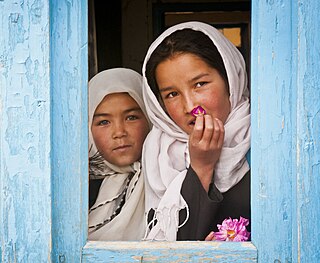
The Hazaras are an ethnic group and a principal component of Afghanistan’s population. They are one of the largest ethnic groups in Afghanistan, primarily residing in the Hazaristan (Hazarajat) region in central Afghanistan. Hazaras also form significant minority communities in Pakistan, mainly in Quetta, and in Iran, primarily in Mashhad. They speak the Dari and Hazaragi dialects of Persian. Dari, also known as Dari Persian, is one of the two official languages of Afghanistan.
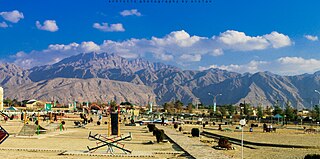
Quetta is the capital and largest city of the Pakistani province of Balochistan. It is the ninth largest city in Pakistan, with an estimated population of over 1.5 million in 2024. It is situated in the south-west of the country, lying in a valley surrounded by mountains on all sides. Quetta is at an average elevation of 1,680 metres above sea level, making it Pakistan's highest altitude major city. The city is known as the "Fruit Garden of Pakistan" due to the numerous fruit orchards in and around it and the large variety of fresh and dried fruits produced there.

Abbottabad is a city in the Hazara Division of Khyber Pakhtunkhwa province, Pakistan. It is the 40th largest city in the country and 6th largest in the province by population, and serves as the headquarter of its namesake tehsil and district. It is about 120 km (75 mi) north of Islamabad-Rawalpindi and 150 km (95 mi) east of Peshawar, at an elevation of 1,256 m (4,121 ft). Kashmir lies a short distance to the east.
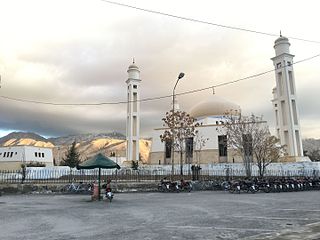
Quetta is a district in the northwestern part of the Balochistan province of Pakistan. According to 2023 Pakistani census population of Quetta District is 2,272,290.
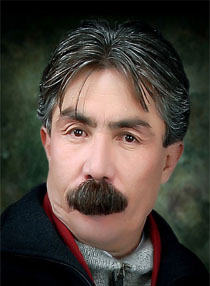
Hussain Ali Yousafi was an ethnic Hazara politician in Balochistan, Pakistan. Yousafi was chairman of the Hazara Democratic Party (HDP) and a member of the Quetta city council. He was assassinated by unknown militants in 2009.
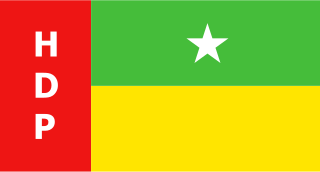
The Hazara Democratic Party (HDP) : is a political party of the Hazara people in Pakistan. It is mainly active in Quetta city, where up to half a million Hazara currently reside.
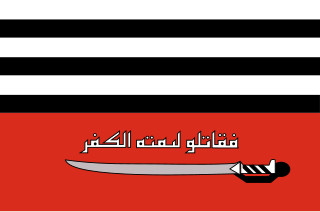
The Lashkar-e-Jhangvi, is a Deobandi supremacist, terrorist and militant organisation based in Afghanistan. The organisation operates in Pakistan and Afghanistan and is an offshoot of anti-Shia party Sipah-e-Sahaba Pakistan (SSP). The LeJ was founded by former SSP activists Riaz Basra, Malik Ishaq, Akram Lahori, and Ghulam Rasool Shah.
Hazara Town is a lower- to middle-income area on the western outskirts of Quetta, Pakistan, of which an almost all the residents are ethnic Hazaras, with a small population of Pashtuns and Baloch.
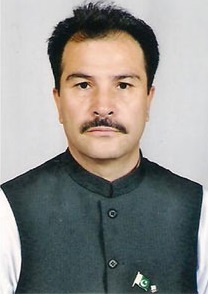
Abrar Hussain was a professional Pakistani welterweight and Light-middleweight boxer. Hussain represented Pakistan at the 1984, 1988, and 1992 Summer Olympics. In 1985 South Asian Games, he won a Gold medal for Pakistan in Dhaka. In 1990 Asian Games, Hussain secured Gold medal in boxing for Pakistan. He also represented his country at the 1990 Commonwealth Games.

The 2011 Mastung bus shooting was an armed attack on 20 September 2011 on a bus traveling in Mastung District near the city of Quetta in the Pakistani province of Balochistan. The attack left at least 26 people dead. The victims were Shi'a Muslim pilgrims of the Hazara community, suggesting the attack to have been a targeted killing of sectarian nature. The attack occurred in Luck Pass area near Mastung. The bus was leaving Quetta for Taftan, Balochistan. In addition, 2 others were killed in a follow-up attack on a car on its way to rescue the survivors of the bus attack, which raised the death toll to 28 on that day.

The Hazaras have long been the subjects of persecution in Afghanistan. The Hazaras are mostly from Afghanistan, primarily from the central regions of Afghanistan, known as Hazarajat. Significant communities of Hazara people also live in Quetta, Pakistan and in Mashad, Iran, as part of the Hazara and Afghan diasporas.

The 2004 Quetta Ashura massacre was a terrorist attack on 2 March 2004 during an Ashura procession in the southwestern city of Quetta, Pakistan. At least 42 people were killed and more than 100 wounded.

On 4 July 2003, 53 Hazara Shias were killed and at least 65 others were injured when a mosque was attacked during the Friday prayer in Quetta, Balochistan, Pakistan. When hundreds of worshipers were offering Friday prayer, three armed men entered the Asna Ashari Hazara Imambargah and started shooting and throwing hand grenades and one suicide bomber blew himself up - which left 53 dead and scores injured. It was the latest of several major sectarian attack in the series of killings of Hazaras in Quetta, coming less than a month after the massacre of Hazara police cadets on June 8, 2003.

2011 Hazara Town shooting refers to a massacre of Hazara people on 6 May 2011 in Hazara Town, Quetta, Pakistan which left 8 dead and at least 15 wounded. The shooting took place early in the morning around 0630 hrs Pakistan Standard Time in a park when people were doing morning-exercises, playing cricket and football. Three rockets were fired which was followed by heavy gunfire. Lashkar-e-Jhangvi (LeJ) claimed responsibility for the attack.

The persecution of Hazaras in Quetta, is a series of ethnic or religious motivated attacks on Hazaras in Quetta, Pakistan.
On 16 February 2013, at least 91 people were killed and 190 injured after a bomb hidden in a water tank exploded at a market in Hazara Town on the outskirts of Quetta, the capital city of Balochistan, Pakistan. Most of the victims were members of the predominantly Shia Twelver ethnic Hazara community, and authorities expected the death toll to rise due to the large number of serious injuries. The Lashkar-e-Jhangvi group claimed responsibility for the blast, the second major attack against the Shia Hazaras in a month.
On 15 June 2013, a series of bombings and a subsequent siege resulted in the deaths of 26 people and injuries to dozens more. On the same day, separatist militants attacked and demolished the historic Quaid-e-Azam Residency in Ziarat.
The Hazara genocide occurred in the aftermath of the Second Anglo-Afghan War when the Afghanistan Emirate signed the Treaty of Gandamak. Afghan Amir Abdur Rahman set out to bring the Turkistan, Hazaristan, and Kafiristan regions under his control. He launched several campaigns in the Hazarajat due to resistance to oppression from the Hazaras, culminating in the Battle of Uruzgan and he conducted a widespread genocidal campaign against its population.
The 2019 Quetta bombing was a suicide bomb attack on an open marketplace in Quetta, Pakistan on 12 April, killing 21 people. The bombing took place near an area where many minority Shiite Muslims live. At least ten Hazara, including nine Shiites, were among the dead. Two paramilitary soldiers were also killed in the bombing. PM Imran Khan expressed condolences for the lives lost, directed the authorities to ensure the best medical treatment for the injured, and ordered an increase in security for Shiites and Hazara people. Lashkar-e-Jhangvi and ISIL later accepted responsibility for the attack, stating that "their target were Hazara people."

Jalila Haider is a Pakistani human rights attorney and political activist from Quetta in Balochistan, Pakistan. She is known to be the first woman lawyer from Quetta's Hazara minority, and an advocate for the rights of her persecuted community. She is a member of the Awami Workers Party (AWP), leader of the Balochistan chapter of Women Democratic Front (WDF), and also an activist in the Pashtun Tahafuz Movement (PTM). She founded a non-profit organisation, "We the Humans – Pakistan," which aims to empower local communities in Balochistan by strengthening opportunities for vulnerable women and children.














